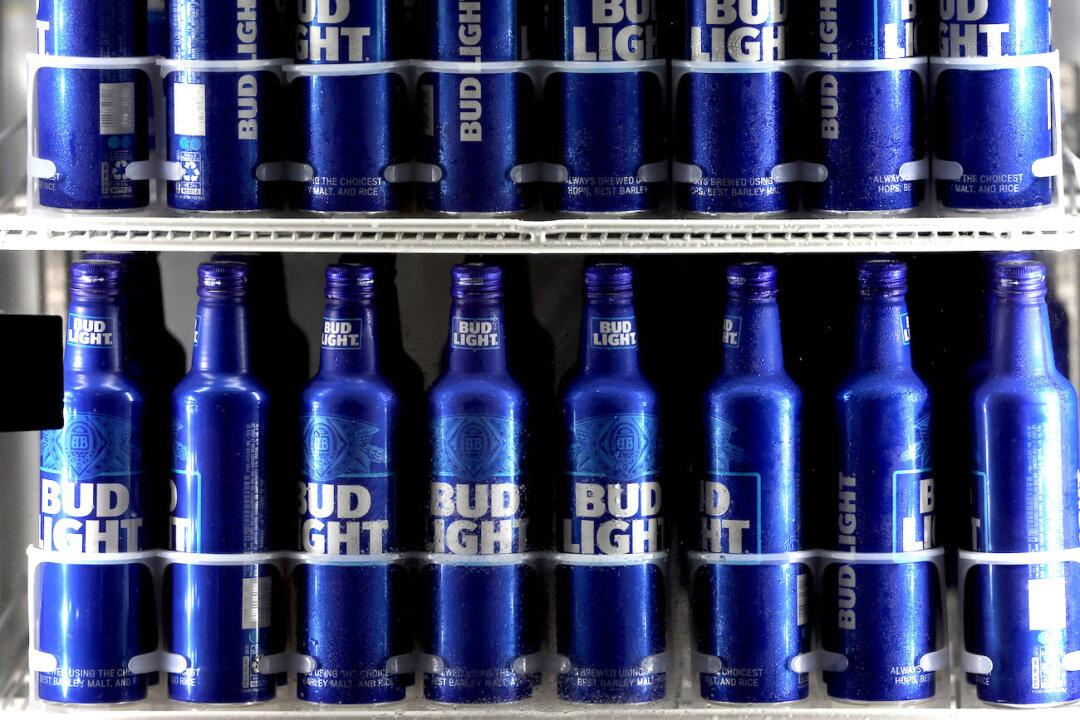The Bud Light controversy hurt Anheuser-Busch InBev’s second-quarter performance in the United States, the world’s largest brewer confirmed in its latest earnings report.
Anheuser-Busch’s U.S. revenue plunged by 10.5 percent year-over-year, “primarily due to the volume decline of Bud Light,” according to the second-quarter corporate earnings data. Overall, revenue in North America declined by $395 million during the three-month period compared with the same time a year ago.





